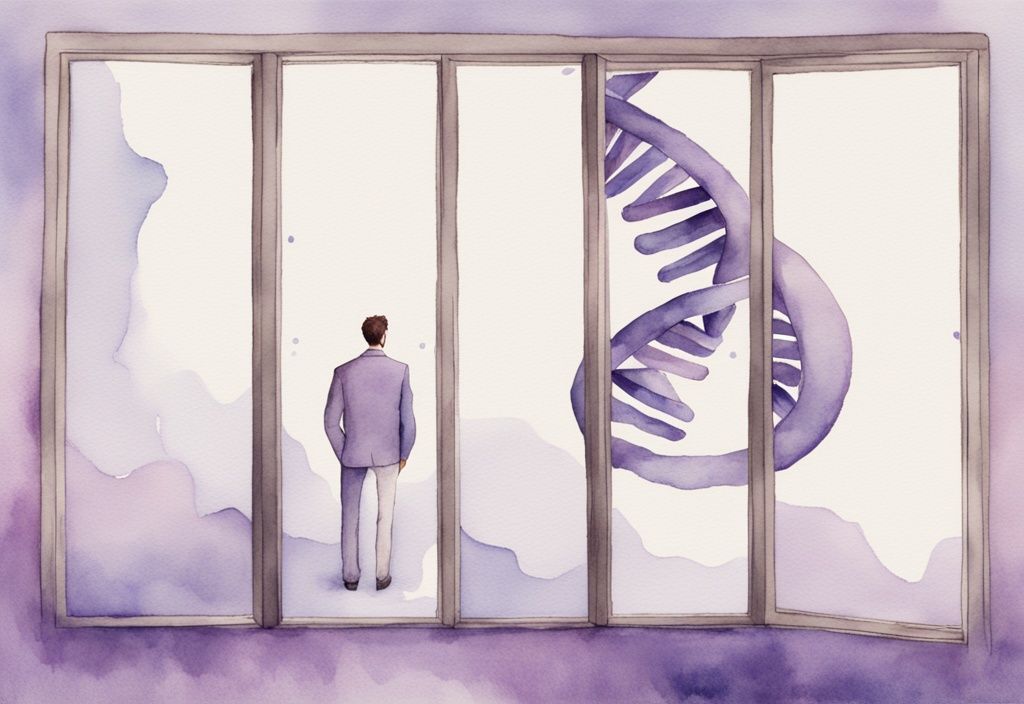Understanding Danger: Are Grandiose Narcissists Dangerous? Unveiling The Truth
Imagine interacting with someone who’s always the life of the party, able to effortlessly charm the socks off anyone. Now, imagine if that charismatic individual held potentially damaging influences hidden beneath their appealing exterior. Could this charming persona be a grandiose narcissist?
The reality is, the grandiose narcissist’s lack of empathy, inflated self-importance, and cunning manipulation can wreak havoc in both personal relationships and professional environments, often leading to emotional, psychological, and even financial harm.
In this article, we get right to the heart of this daunting query, ‘are grandiose narcissists dangerous?’. Using insights and strategies, we will explore the signs, the impacts, and steps to protect yourself from falling victim to their damaging influence. Prepare to unveil the truths hidden beneath their charming façade.
Understanding Grandiose Narcissism
Grandiose narcissism, a fascinating yet alarming subtype of narcissistic personality disorder (NPD), often leaves many questioning, “Are grandiose narcissists dangerous?” By delving into its definition, key characteristics, and comparing it with other forms of narcissism, we can better understand the potential risks and impact these individuals may pose.
Defining Grandiose Narcissism
- Inflated Self-Importance: This refers to an exaggerated sense of self-worth and an insatiable need for admiration and attention.
- Egocentricity and Arrogance: Grandiose narcissists believe in their inherent superiority over others, often displaying egocentric and arrogant behavior.
- Fantastical Aspirations: They often fantasize about attaining unlimited success, beauty, brilliance, and power, creating an idealized self-image that drives their actions.
Key Characteristics of Grandiose Narcissists
- Exaggerated Self-Importance: These individuals exhibit an excessive sense of self-importance and overconfidence.
- Lack of Empathy: Their profound lack of empathy makes them indifferent to the effects of their actions on others.
- Manipulative Behavior: They often resort to manipulative tactics to maintain control and validate their superior self-image.
- High Self-Esteem: Though possessing high self-esteem, they exhibit a relentless craving for admiration.
- Charming Yet Exploitative: While they can be charming and magnetic, their relationships often become exploitative and harmful.
Grandiosity vs. Pathological and Malignant Narcissism
Understanding the spectrum of narcissism helps in assessing the danger posed by different types of narcissists. Here, we compare grandiose narcissism with pathological and malignant narcissism to highlight the distinctions and potential risks.
- Pathological Narcissism: This form blends elements of psychopathy, posing significant harm due to its extreme nature.
- Malignant Narcissism: The most severe type, characterized by impulsiveness, irrationality, violence, and a thirst for revenge. Individuals with malignant narcissism exhibit traits of antisocial personality disorder, including sadism and insensitivity, making them particularly dangerous.
Reflecting on these traits and behaviors, one can discern that grandiose narcissists, while seemingly less harmful than their malignant counterparts, still pose dangers due to their manipulative and exploitative nature.
Recognizing these signs can help in safeguarding oneself from the potential harm they may inflict.
The Psychology Behind the Danger
Lack of Empathy and Manipulation
Grandiose narcissists exhibit a profound lack of empathy, a trait that fuels their manipulative and controlling behaviors. Their primary concern is fulfilling their own egoistic needs, often at the expense of others’ well-being. This lack of empathy means they are indifferent to the pain and distress they cause. For them, manipulation becomes a tool to maintain control and ensure a constant supply of admiration and validation. This manipulative behavior can leave victims feeling confused, disoriented, and emotionally drained. In both personal and professional settings, such dynamics make grandiose narcissists especially dangerous.

Impulsiveness and Risk-Taking Behavior
Grandiose narcissists are notorious for making reckless and impulsive decisions. Their actions are driven by a need for excitement, admiration, and validation, showing blatant disregard for potential harm to themselves or others. Whether it’s making risky financial decisions or engaging in thrill-seeking behaviors, their focus remains on immediate gratification and self-glorification. The consequences of this impulsiveness can be significant, affecting not only the narcissist but also those in their vicinity. This highlights how their behavior can be unpredictably dangerous.
Hostility and Aggression
When their inflated self-image is challenged, grandiose narcissists often respond with hostility and aggression. This defensive mechanism is employed to protect their fragile ego. They may exhibit both proactive aggression to dominate others and reactive aggression in response to perceived threats. Their anger can be sudden and intense, creating an environment of fear and tension. Such aggressive behavior underscores the potential danger they pose to those who inadvertently challenge their superiority, making interactions with them particularly volatile and risky.
Impact on Personal Relationships: Understanding the Dangers of Grandiose Narcissists
Grandiose narcissists can wreak havoc in personal relationships, leaving their partners emotionally scarred and psychologically damaged. Here’s a closer look at how their toxic behavior manifests.
Emotional and Psychological Abuse
Grandiose narcissists often belittle and demean their partners to assert superiority. This constant degradation serves to elevate their sense of self-importance while diminishing the self-worth of their victims.
Emotional and psychological abuse from grandiose narcissists can be profoundly damaging, often leading to mental health issues such as anxiety, depression, and diminished self-esteem. The victims may find themselves questioning their own value and suffering from persistent feelings of inadequacy.
Manipulative Tactics Such As Love-Bombing and Gaslighting
To maintain control in a relationship, grandiose narcissists frequently resort to manipulative tactics like love-bombing and gaslighting. Love-bombing involves showering the victim with excessive flattery and attention, creating an illusion of an ideal relationship. This phase can be intoxicating, making the victim dependent on the narcissist’s approval.
Gaslighting, on the other hand, is a psychological manipulation technique where the narcissist makes the victim doubt their own memories, perceptions, and sanity. These tactics cause deep confusion and dependency, making it incredibly challenging for the victim to recognize the abuse and break free from the toxic relationship.
Signs of a Toxic Relationship with a Grandiose Narcissist
Recognizing a toxic relationship with a grandiose narcissist can sometimes be difficult. Key signs include feeling exploited and used, experiencing constant emotional drain, and identifying behaviors of manipulation and control often only in hindsight.
These relationships are typically marked by continuous turmoil and a persistent need for the narcissist’s validation. The partner may notice patterns of being belittled and unable to maintain their autonomy, leading to a toxic cycle that is hard to escape.
Consequences in Professional Settings
Narcissistic Leaders and Organizational Risks
When grandiose narcissists rise to leadership roles, their assertiveness and confidence can mask more troubling traits. Despite appearing strong, these leaders often prioritize their own achievements and status over the well-being of the organization. This self-interest can erode team morale and create a toxic atmosphere at work.
Moreover, decision-making under such leaders can become dangerously skewed. Driven by egocentric goals rather than the organization’s vision, they can lead the company towards poor long-term strategies and instability. Picture a captain steering a ship based on personal whims instead of navigational charts—eventually, the ship is bound to falter.
Decision-Making and Overconfidence
Grandiose narcissists often exhibit overwhelming overconfidence, resulting in significant gaps in judgment. They frequently dismiss expert advice, convinced that they know better.
This hubris can lead to hasty and ill-informed decisions that jeopardize the organization’s strategic planning and operational effectiveness.
Their reliance on intuitive decision-making over factual data and thorough analysis only compounds the issue. Imagine a chef ignoring a recipe and cooking based on a whim—the outcome is seldom palatable. For more strategies on handling difficult personalities, check out our 50 phrases to disarm a narcissist.
This approach stifles innovation and critical thinking within teams, creating an environment where conformity and resentment thrive, ultimately leading to decisions that lack balanced perspectives.

Risk-Taking and Financial Mismanagement
The propensity for high-risk ventures among grandiose narcissists stems from a desire for excitement and recognition. However, this behavior often jeopardizes financial stability, exposing the organization to potential losses and volatility. It’s akin to gambling with the company’s future for personal exhilaration.
Unethical practices, including fabricating results and employing manipulative tactics to deceive stakeholders, become prevalent in their quest to maintain an image of invincibility. Such conduct not only poses legal risks but also tarnishes the organization’s reputation.
In the long term, financial health under grandiose narcissistic leadership becomes precarious. Excessive risk-taking can drain resources and create vulnerabilities, making the company susceptible to fraud and corruption. Think of it as building a house on a shaky foundation—it may stand for a while, but inevitability catches up.
By acknowledging these detrimental effects, organizations can recognize the inherent dangers posed by grandiose narcissism. Proactively addressing these issues is crucial in creating a healthier, more stable working environment.
Safety Measures and Protective Strategies
Navigating interactions with grandiose narcissists can be tricky and often hazardous. This section sheds light on the essential safety measures and protective strategies one can adopt to safeguard against the potential harm posed by these individuals.
Recognizing the Traits of Grandiose Narcissism
Understanding the traits of grandiose narcissism is vital in shielding yourself from potential danger. People with grandiose narcissism typically showcase:
- High Self-Esteem: A deeply inflated sense of self-worth and supreme confidence that can be misleading.
- Lack of Empathy: An inability to connect with or even acknowledge others’ emotions.
- Manipulative Behaviors: A tendency to exploit others to achieve their own goals and desires.
- Need for Admiration: An insatiable craving for constant adulation and validation from everyone around them.
By staying vigilant and recognizing these behaviors, you can better perceive the potential risks associated with grandiose narcissists. Observing how they react to criticism or perceived threats can further help in identifying the potential dangers they pose.
Maintaining Personal Boundaries
Safeguarding yourself from grandiose narcissists often hinges on setting and maintaining firm boundaries. Here’s how you can protect your emotional and psychological well-being:
- Clearly Defining Boundaries: Determine and clearly communicate which behaviors are unacceptable to you, and stick to these limits unwaveringly.
- Avoiding Confrontations: Steer clear of arguments or challenges that might escalate into hostile situations.
- Consistent Enforcement: Regularly reinforce your boundaries to ensure they continue to be acknowledged and respected.
By steadfastly upholding these boundaries, you equip yourself to withstand manipulation and control, thereby diminishing the risk of emotional and psychological harm.
Seeking Support and Professional Help
Encountering grandiose narcissists can be deeply taxing, making it crucial to seek both professional and personal support:
- Mental Health Professionals: Therapists or counselors can offer valuable strategies for managing interactions and preserving your mental health.
- Support System: Lean on a robust network of friends and family to provide emotional backing and alleviate stress.
- Education: Enhance your understanding of grandiose narcissism to improve your coping mechanisms and resilience.

Investing in professional guidance and surrounding yourself with a dependable support network can significantly aid in mitigating the negative impact of grandiose narcissists. Proactive measures in these areas can dramatically enhance your resilience and overall well-being.
Conclusion
Grandiose narcissists can be particularly dangerous due to a combination of troubling traits. Their lack of empathy renders them indifferent to the suffering and needs of others, contributing to their penchant for manipulative behaviors. This often results in emotional, psychological, and sometimes physical exploitation.
Furthermore, grandiose narcissists exhibit impulsiveness that can lead to reckless decisions devoid of consideration for the consequences, either for themselves or others. When their inflated self-image faces challenges, their typical response can escalate to aggression. This combination of traits makes personal and professional relationships with grandiose narcissists highly volatile and potentially destructive.
Their influence spans various aspects of life, as they leave significant emotional, psychological, and financial damage in their wake. For those looking to understand more, exploring books for narcissists can provide valuable insights.
In personal relationships, they may belittle, manipulate, and emotionally abuse their partners, leading to lasting mental health issues such as anxiety, depression, and diminished self-worth. Professionally, their overconfidence and risky decision-making can jeopardize organizational integrity and success.
Recognizing the traits of grandiose narcissism is a critical first step in mitigating their harmful effects. Look for signs of high self-esteem, exaggerated self-importance, and a vehement reaction to criticism. Once identified, it is essential to set and maintain personal boundaries to protect oneself from their manipulative and controlling behaviors. If you’re looking for ways to handle these situations with humor, consider these funny things to say to a narcissist. Avoid direct confrontations that may provoke more aggressive responses.
Finally, seeking support from mental health professionals can be invaluable. Professionals can provide strategies for managing interactions and maintaining emotional well-being. Building a robust support network can further buffer the negative impacts of dealing with a grandiose narcissist. Employ these strategies comprehensively to safeguard your personal and professional realms from their potentially harmful influence.
Frequently Asked Questions (FAQs)
Are grandiose narcissists dangerous?
Indeed, grandiose narcissists pose a significant threat due to their profound lack of empathy and manipulative behaviors. Their penchant for aggression and risky actions, often driven by a relentless need to maintain their superior self-image, can lead to deeply harmful and destructive consequences for those around them.
How can grandiose narcissists affect mental health?
Grandiose narcissists can wreak havoc on your mental health, inflicting emotional and psychological abuse that can result in anxiety, depression, and diminished self-esteem. The scars of such abuse often linger, causing long-term psychological effects that can shape one’s outlook and mental well-being.
Can a grandiose narcissist change their behavior?
While it is challenging, behavioral change is not entirely out of reach for grandiose narcissists, especially with therapeutic interventions. However, many resist seeking help because they fail to recognize their actions as problematic, making substantial change a rarity.
How do I protect myself from a grandiose narcissist?
Safeguarding oneself from a grandiose narcissist starts with recognizing their traits and setting firm personal boundaries. Seek support from mental health professionals and build a robust support network of friends and family who can offer solace and strength.
What are the signs of being in a relationship with a grandiose narcissist?
Being in a relationship with a grandiose narcissist is often marked by emotional exhaustion and manipulation, such as love-bombing and gaslighting. You might feel belittled and caught in patterns of control and exploitation. These relationships are frequently tumultuous, driven by the narcissist’s endless need for validation.
Understanding the Impact of Grandiose Narcissists
In this section, explore common queries related to the dangers posed by grandiose narcissists, their impact on mental health, potential for behavioral change, protective measures, and signs of involvement in a relationship with one. Deeply understanding these aspects can help you navigate the complexities of dealing with grandiose narcissists.














Post Comment